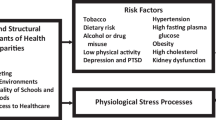Abstract
Eugenics, the attempt to improve the genetic quality of the human species by ‘better breeding’, developed as a worldwide movement between 1900 and 1940. It was particularly prominent in the United States, Britain and Germany, and in those countries was based on the then-new science of Mendelian genetics. Eugenicists developed research programs to determine the degree to which traits such as Huntington's chorea, blindness, deafness, mental retardation (feeblemindedness), intelligence, alcoholism, szhiophrenia, manic depression, rebelliousness, nomadism, prostitution and feeble-inhibition were genetically determined. Eugenicists were also active in the political arena, lobbying in the United States for immigration restriction and compulsory sterilization laws for those deemed genetically unfit; in Britain they lobbied for incarceration of genetically unfit and in Germany for sterilization and eventually euthanasia. In all these countries one of the major arguments was that of efficiency: that it was inefficient to allow genetic defects to be multiplied and then have to try and deal with the consequences of state care for the offspring. National Socialists called genetically defective individuals ‘useless eaters’ and argued for sterilization or euthanasia on economic grounds. Similar arguments appeared in the United States and Britain as well. At the present time (1997) much research and publicity is being given to claims about a genetic basis for all the same behaviors (alcoholism, manic depression, etc), again in an economic context – care for people with such diseases is costing too much. There is an important lesson to learn from the past: genetic arguments are put forward to mask the true – social and economic – causes of human behavioral defects.
Similar content being viewed by others
References
Adams, G., 1966. The Age of Industrial Violence. Columbia University Press, New York.
Allen G.E., 1978. Thomas Hunt Morgan: The Man and His Science. Princeton University Press, Princeton.
Allen, G.E., 1986. The Eugenics Record Office at Cold Spring Harbor: An Essay in Institutional History. Osiris, New Series 5: 225–264.
Allen, G.E., 1987. The role of experts in scientific controversy, in Scientific controversies; Case Studies in the Resolution and Closure of Disputes in Science, edited by H.T. Engelhardt and A.L. Caplan. Cambridge University Press, Cambridge.
Allen, G.E., 1997 in press. Modern biological determinism: The Violence Initiative, the Human Genome project, and the new eugenics, in Sociology of Sciences Yearbook: The Practices of Human Genetics 19, Volume 4 edited by E. Mendelsohn and M. Fortun.
Barkan, E., 1992. The Retreat of Scientific Racism. Changing Concepts of Race in Britain and the United States between the World Wars. Cambridge University Press, Cambridge.
Burleigh, M., 1994. Death and Deliverance. 'Euthanasia' in Germany 1900–1945. Cambridge University Press, Cambridge.
Chase, A., 1977. The Legacy of Malthus. Alfred A. Knopf, New York.
Davenport, C.B., 1910. Eugenics. The Science of Human Improvement By Better Breeding. Henry Holt, New York.
Davenport, C.B., 1913. Heredity, culpability, praiseworthiness, punishment, and reward. Popular Science Monthly 82: 33–39.
Davenport, C.B., 1915. The feeblyinhibited I. Violent temper and its inheritance. Journal of Nervous and Mental Disease 42(9): 593–628.
Davenport, C.B., 1928. Crime, heredity and environment. Journal of Heredity 19(7): 307–313.
Galton, F., 1883. Inquiry into Human Faculty and its Development. MacMillan & Co., London.
Gould, S.J., 1996. The Mismeasure of Man, revised edition. W.W. Norton, New York.
Hassencahl, F.J., 1970. Harry H. Laughlin, Expert Eugenics Agent for the House Committee on Immigration and Naturalization, 1921–1931 (Doctoral dissertation, CASE Western Reserve University, Cleveland, 1970). Dissertation Abstracts International, 3201A, page 0576.
Horgan, J., June 1993. Eugenics revisited. Scientific American 268: 122–131.
Jennings, H.S., March 14, 1924. Proportions of defectives from the northwest and from the southeast of Europe. Science 59: 256–257.
Kamin, L.J., 1974. The Science and Politics of I.Q. Lawrence Erlbaum, Potomac, Maryland.
Kevles, D.J., 1986. In the Name of Eugenics. Basic Books, New York.
Koshland, D., Oct 12, 1990. The rational approach to the irrational. Science 250: 189.
K¨ uhl, S., 1994. The Nazi Connection, Eugenics, American Racism and German National Sociality. Oxford University Press, New York.
Laughlin, H.H., 1922. Eugenical Sterilization in the United States. The Pathological Laboratory of the Municipal Court of Chicago, Chicago.
Laughlin, H.H., 1923. Analysis of America's Modern Melting Pot. Hearings Before the Committee on Immigration and Naturalization, House of Representatives, SixtySeventh Congress (November 21, 1922). Government Printing Office, Washington, D.C.
Lens, S., 1973. The Labor Wars. Doubleday, New York.
Lombardo, P.A., 1985. Three generations of imbeciles is enough: New light on 'Buck vs Bell'. New York University Law Review 60: 30–62.
Ludmerer, K., 1972. Genetics and American Society. Johns Hopkins University Press, Baltimore.
Mehler, B., 1994. In genes we trust. When science bows to racism. Reform Judaism 23: 10–13; 77–79.
Paul, J., 1974. State Eugenic Sterilization History: A Brief Overview, p. 31 in Eugenic Sterilization, edited by Jonas Robitscher. Charles C. Thomas, Springfield, IL.
Pernick, M., 1996. The Black State: Eugenics and the Death of Defective Babies in American Medicine and Motion Pictures Since 1915. Oxford University Press, New York.
Proctor, R., 1988. Racial Hygiene; Medicine under the Nazis Harvard University Press, Cambridge.
Reilly, P.R., 1991. The Surgical Solution. A History of Involuntary Sterilization in the United States. Johns Hopkins University Press, Baltimore.
Weindling, P., 1989. Health, Race and German Politics between National Unification and Nazism, 870–1945. Cambridge University Press, New York.
Weiss, S.F., 1990. The racehygiene movement in Germany, 1904–1945 in The Wellborn Science, pp. 8–68, edited by M.B. Adams. Oxford University Press.
Wiebe, R., 1967. The Search for Order. Hill and Wang, New York.
Author information
Authors and Affiliations
Rights and permissions
About this article
Cite this article
Allen, G.E. The social and economic origins of genetic determinism: a case history of the American Eugenics Movement, 1900–1940 and its lessons for today. Genetica 99, 77–88 (1997). https://doi.org/10.1023/A:1018396529332
Issue Date:
DOI: https://doi.org/10.1023/A:1018396529332




